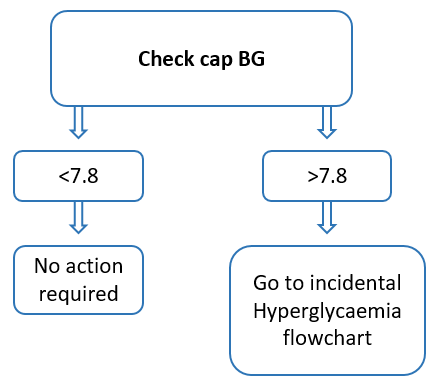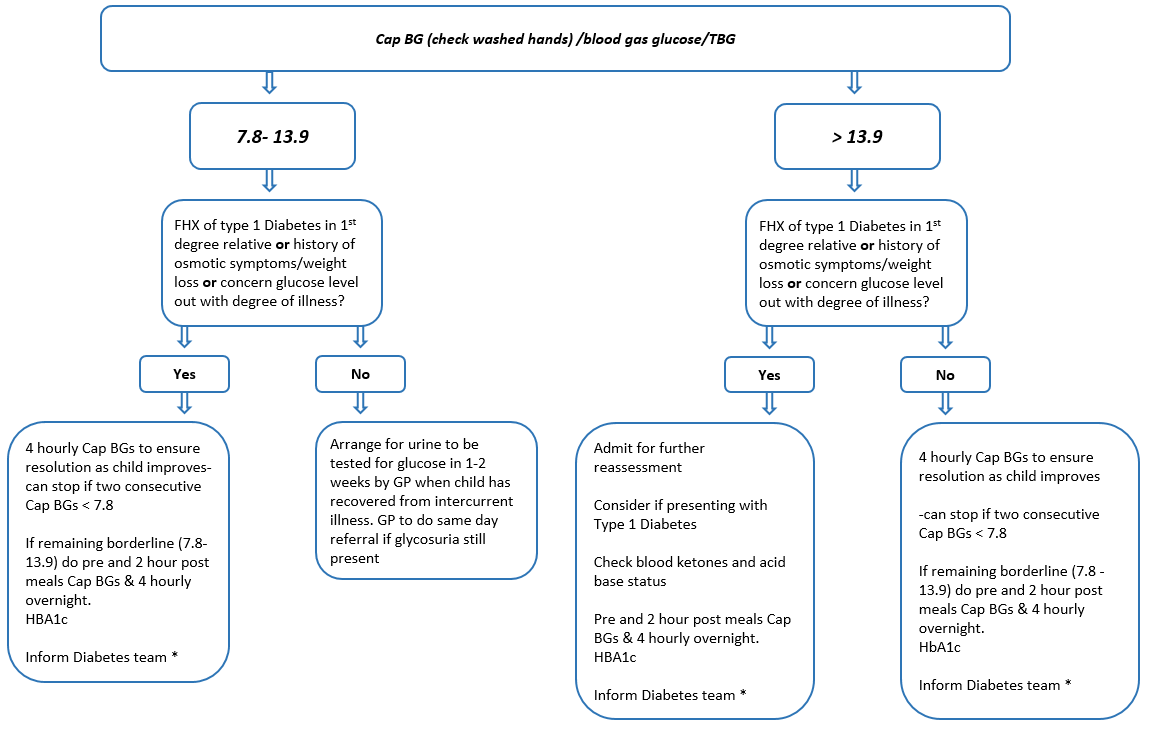Incidental hyperglycaemia / glycosuria
exp date isn't null, but text field is
Objectives
For acute medical staff in CDU and ED when assessing children with intercurrent illness who are found to have incidental hyperglycaemia/glycosuria. To guide how to manage these children in terms of further investigation and follow up
Glycosuria and hyperglycaemia may be seen as part of the normal stress response in children with infection and also in association with medications such as steroids. This may be identified on urine dipstick testing or on a blood gas/cap BG/TBG
In some cases, the child has simply not washed their hands (alcohol gel does not count).
Children who may be presenting with type 1 Diabetes/ impaired glucose tolerance in addition to their intercurrent illness.
Please see Intermittent/borderline hyperglycaemia for well children with intermittent/borderline hyperglycaemia where criteria is not met for Diabetes.

* If Diabetes team unavailable, can be discharged if HbA1c within normal range and all Cap BGs <11.1 for 24 hours. Discuss with Diabetes team when available.
- If HbA1c not available, can be discharged if cap - BGs< 7.8 for 24 hours. Chase HbA1c - PUT in 2C JOB BOOK. Discuss with Diabetes team when available.
Diabetes medical team - 0141 452 4961
Diabetes Hot nurse - 0141 452 4646
Out of Hours - General Paediatric team
Last reviewed: 05 March 2024
Next review: 28 February 2027
Author(s): Dr Karen Whyte, Consultant Paediatrician
Version: 1
Author Email(s): Karen.whyte2@ggc.scot.nhs.uk
Approved By: Paediatrics Guidelines Group


